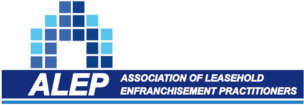Lawyers Specialising in Family Business Legal Disputes
Disputes can easily arise in any form of business. In a situation where money and livelihoods are involved, tempers can often flare and feelings can run high. Disputes and disagreements are also very common within families, with people living in close proximity often falling out over seemingly insignificant things. In situations where family life and business cross over, then, the potential for damaging disputes is particularly high. As a result, family business disputes can be particularly damaging.
Worried about a Family Business Dispute? Our Lawyers always offer FREE initial phone advice with no strings attached. So call us today – a simple phone call could put your mind at rest
The scale of the problem
It’s arguable that the family business is the backbone of the British economy. It’s estimated that there are more than 5 million family businesses in the UK. And they generating a huge part of UK GDP – over one third. And these kind of UK firms employ 14 million people –half the total number employed by the private sector.
And the sector is growing – fast. According to research commissioned by the Institute for Family Business (a UK charity), the number of UK family firms rose by a staggering 73.8% between 2010 and 2018.
What are the most common disputes in family businesses?
With family firms, you’ll often find that family members are able to be more open and honest with each other than they would be with other work colleagues. But this honesty can sometimes lead to problems if it is not dealt with properly.
If one family member feels that another isn’t pulling his or her weight, for example, they may say so — and not always in the most delicate way possible.
Some of the most common causes of family business disputes include:
• Interference — Some family members who work for the business might resent interference from those who don’t. These family members might feel they have just as much say in the business as it is a business run for the benefit of the family, and thus has an impact on all members of the family. However, it’s understandable that those putting in the time and effort might feel aggrieved at this perceived interference by those who aren’t actively involved in the business.
• Retired family members — When you retire from these kind of firms, it can often be difficult to take a back seat and accept that someone else is now running the company. When you’re seeing your kith and kin often it’s likely that the business will be discussed. It can be tricky not to get involved once you’re retired or offer your advice. This might be seen as interference from those active in the business, though.
• Favouritism — This is a big issue in many families, with some members feeling that others are being prioritised above them. When work is thrown into the mix, too, it can be particularly distressing for everyone involved. If a younger sibling is put in a more senior position to an older sibling, this can cause tension which will need to be resolved. Also, if non-family members are employed by the business, they may perceive favouritism towards those employees who are also family members.
• Inward-facing outlook — Some family run firms can become quite insular and try to keep everything internal, reluctant to appoint outside advisors or seek help and assistance from elsewhere. It’s worth considering that not everything business-related can always be kept within the family, and you should take into account all possibilities which might be the most commercially viable and successful options to take.
• Family shareholders using their shares as a weapon — If there’s a falling out within the family which is not related to the running of the business, it’s possible that someone might choose to use their shares as a weapon in the dispute. This can mean that personal issues spill over into the running of the business and have a negative impact on it.
• Reluctance to get involved — In this type of business, the expectation can often be there on children to become involved in the business and work for it. However, some children might not want to become involved and might want to seek their own independent careers. This can cause deep tensions both within the business and the family.
If family members fall out, the impact on the firm could be catastrophic. Keeping family life and professional business life separate can be very difficult, but it is vital to ensuring that your business is able to carry on working effectively and growing to be as successful as it can be. All employees of the business should be treated fairly and be subject to the company’s disciplinary procedures, whether they’re family members or not.
How common are family business disputes?
Sadly far too common – and they are the cause of many business failures. In fact, according to recent research by the Harvard Business Review, a huge “70% of family-owned businesses fail or are sold before the second generation gets a chance to take over.”
Avoiding family business disputes in the 1st place
As with most types of dispute, the best way to minimise them is to try and ensure they don’t happen in the first place.
And getting the right paperwork on day one can really help – so everyone understands and agrees the basics of how the business should be run.
If your family owned firm is a limited company then a proper set of Articles of Association and a shareholders’ agreement drafted by an experienced business lawyer and reflecting the particular circumstances of your family and your business. These legal documents can protect against possible future problems, allowing everybodyinvolved to see exactly where they stand at all times – and ensure that you are able to mitigate possible future business disputes.
Click here to find out more about what to put in a Shareholders’ Agreement
Family business dispute resolution
However, if you’re already in a dispute it may be too late for these agreements to be drawn up. In this case, to really good idea to get some initial advice from an experienced dispute resolution solicitor, roughly one with good experience of family business disputes.
Firstly they can outline your options, so you know exactly where you stand. And most experienced dispute resolution lawyers will try really hard to diffuse tension the aim of reaching an amicable agreement which suits everybody and the business as a whole. Advice and support from a legal expert at an early stage can be extremely useful to resolving your differences.
And any disagreement becomes even more complex if divorce is involved.
Click here to read more about divorce and the family owned business.
Our approach to resolving your dispute
Here at Bonallack & Bishop we really understand these kind of businesses? Why? Because we are a family run law firm. The practice is owned by Tim Bishop who runs the firm with his wife, Practice Director, Jane. Tim and Jane’s eldest son spent over a year working in the business, and currently we have 2 sets of mothers and daughters working for us.
And when it comes to resolving disagreements, we are strong supporters of Alternative Dispute Resolution (or ADR) – a range of approaches which attempt to settle disputes and reach an agreement that everyone can live with, without the need of a court hearing.
And don’t be an end under any illusion – going to court is slow, highly stressful and can prove very expensive. Court litigation should be seen as very much the last resort – and only to be embarked on when all other attempts at dispute resolution have failed.













